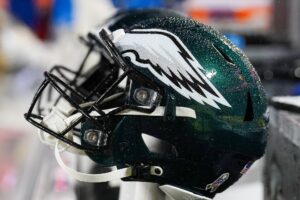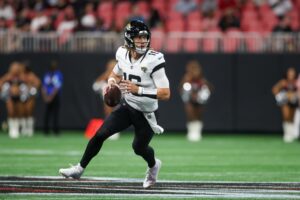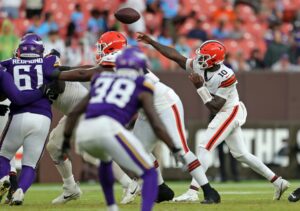Lately, much has been said about Ted Thompson’s ability to retain players and the decision making process behind his choices. As soon as the first free agents moved on to other teams, fans and media just about broke Twitter. “Ted Thompson should be fired for losing T.J. Lang” and “He’s wasting Aaron Rodgers‘ prime”, they tweeted. At times, it seemed difficult to follow the logic of Thompson’s decisions. At the same time, one has to realize that he has a whole crew of scouts working for him. There is likely a plan, and it is built on information Thompson will have been fed from his staff. So who’s on that crew? Let’s take a look at Green Bay’s Recon Team: the scouts.
A Closer Look at the Green Bay Packers Scouts
Do you have to be a retired player to have a shot, or can anyone be, let’s say, a scout? In the NHL, we see fans and former players become equipment managers, team physiotherapists, color commentators and sportswriters. So how did the Green Bay Packers scouts land here? Judging from their careers, there doesn’t seem to be a set path. Instead, the Packers’ scouts have varied backgrounds, but with some commonalities. For example, all have a background playing football in college, and successfully at that. Jon-Eric Sullivan, Sam Seale, John Wojciechowski come to mind here. As it turns out, scouting isn’t just “a thing” for former NFL, NBA and NHL players. Of course it helps to have a background in the league if you want to “work for” the Packers organization. Chad Brinker and Seale were both signed players before landing front office positions with the Packers.
Previous Experience
Some of Green Bay’s scouts were hired from other NFL teams. Matt Malaspina, a recent addition to the Packers’ scouting crew, has a long list of NFL teams on his resume. John Wojciechowski was a scout for the Jacksonville Jaguars and Dallas Cowboys before joining the Packers scouting crew. He began his NFL career as a player personnel assistant for the Pittsburgh Steelers. He’s been on the payroll of the San Francisco 49ers, the Seattle Seahawks, and the Carolina Panthers. Like Malaspina, some of the scouts have served as scouting interns or worked their way up through the organization. Jon-Eric Sullivan was a scouting intern during the Packers’ 2003 training camp. He then worked his way up the ranks to finally become director of college scouting last year. Richmond Williams and Charles Walls were also a scouting intern for the Packers earlier in their careers.
Not Your Average Students
If the scouts have all played college football, then they’ve obviously attended post secondary education. There is, however, no commonality in the subjects they’ve studied. The degrees include one B.A. in social science, one in sports management, another in economics. One scout holds an M.A. in sports administration, and Malaspina is currently pursuing an M.A. in public administration. Other choices include a certificate of entrepreneurship, a specialized-studies degree in exercise science, a degree in sociology, and a minor in African-American studies. Education, apparently, is really where you find the commonality; these are not just your average graduates. Several scouts have more than one degree, and between them, they have been awarded the Colonial Athletic Association Commissioner’s Award, the Carl Smith Award for outstanding achievement in academics and athletics, and the Colonial Athletic Association Commissioner’s Award in recognition of academic success, and at least one of them has graduated summa cum.
Not Your Average Fan
Some of the scouts currently on the Packers’ payroll, including Alonzo Dotson, Sullivan and Williams, come from families with histories in football. In a world where “who you know” is what counts, that should be a factor. Instead it seems that in this case, it’s about “what you know.” Apparently being “well-rounded” is a prerequisite for the job. Think of it: there are literally millions of football fans. Of them, a small percentage have the prerequisite background and training, and know the game as well as these guys. And among them, only a small group will have graduated with honors or received awards like these individuals. Even fewer have stayed active in their communities by volunteering. A glance at the scouts’ resumes shows them taking the time to support their communities in a variety of ways. It’s anything from coaching little league to co-chairing a youth community initiative.
Interpreting the Game
Scouting is very much about how you interpret what you see. You’d have to be well rounded and have an ear to the ground to be able to interpret players. This should enable a scout to pick a player that’s not “just” a great player, but one that will fit in with the team’s culture. Once these guys recognize “that player,” they have to present their findings. Then, after that, it’s up to management to make the right decisions for the team. That’s where Ted Thompson has to strategize like a chess player. That’s also where the gap between management and fans exists. Management has scouting reports. Fans don’t. Ted Thompson knows stuff going into free agency that the average fan doesn’t know. He has the scouting reports, and the scouts know the terrain that lies ahead. They are, after all Green Bay’s recon team.






